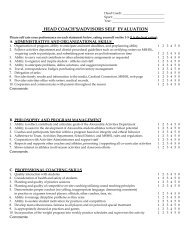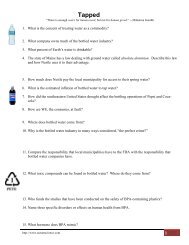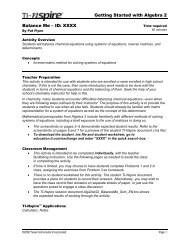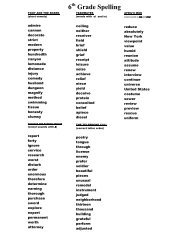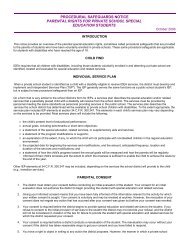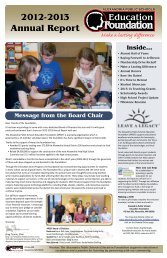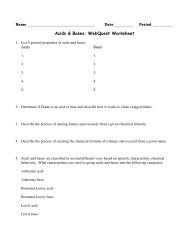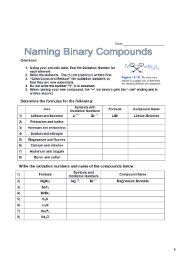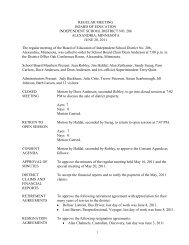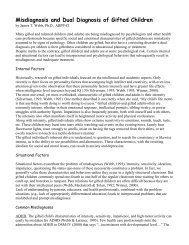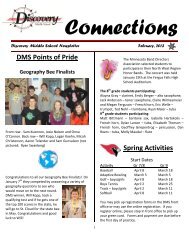Chapter 4 - Implementing a System of Research-based Interventions
Chapter 4 - Implementing a System of Research-based Interventions
Chapter 4 - Implementing a System of Research-based Interventions
Create successful ePaper yourself
Turn your PDF publications into a flip-book with our unique Google optimized e-Paper software.
<strong>Chapter</strong> 4 <strong>Implementing</strong> a <strong>System</strong> <strong>of</strong> <strong>Research</strong>-Based <strong>Interventions</strong><br />
acquisition or decoding/encoding subskills. Based on a review <strong>of</strong> data, she and the other<br />
grade-level teachers quickly analyze the list <strong>of</strong> students at risk and make assignments to<br />
standard protocol language and decoding interventions.<br />
Resource Tool: Skills Hierarchies for Targeting Skill Deficits<br />
Language Skills Hierarchy<br />
If screening indicates that a student is significantly behind in reading skills, and it is more<br />
likely due to inadequate language skills than phonics skills, additional screening on the<br />
developmental stages <strong>of</strong> language is indicated. The decision tree below shows one<br />
possible diagnostic sequence. The rule <strong>of</strong> thumb is, “test backwards and teach forwards.”<br />
Testing backwards means backtracking through the diagnostic sequence to determine the<br />
student’s instructional level and identify the appropriate intervention starting point.<br />
Figure 4-4. Diagnostic Sequence For Determining Point <strong>of</strong> Intervention – Language<br />
For students lacking in sufficient independent reading skills, teachers may begin their<br />
evaluations with determining the adequacy <strong>of</strong> listening comprehension and oral expression<br />
skills.<br />
Guidance on Linking Language and the Development <strong>of</strong> Basic Reading and<br />
Comprehension Skills<br />
Although sufficient evidence indicates that students with previously identified language<br />
delays may experience persistent difficulty in acquiring literacy skills, not all language<br />
disorders impact the development <strong>of</strong> literacy skills. The following guidance may help teams<br />
sort through which language issues may lead to difficulty in acquiring basic reading or<br />
reading comprehension skills:<br />
Some students with articulation issues may be falsely identified as at-risk in<br />
benchmarks requiring oral production. Consider the influence <strong>of</strong> articulation errors<br />
in acquisition or early literacy skills. Consult with speech clinician to determine if<br />
pattern <strong>of</strong> errors on literacy screening are due to articulation. Consider whether the<br />
Minnesota Department <strong>of</strong> Education Draft 4-16



